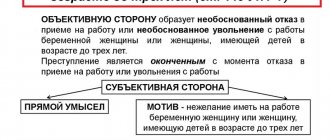Downtime is the actual inaction of the entire enterprise, some structural divisions or individual employees, caused by objective reasons. It is necessary to distinguish between actual simple and simple, declared by the relevant local legal act.
For example, equipment has broken down, so workers cannot complete production tasks. This happened due to the fact that the planned production repair schedule was not fulfilled. As a result of two days of work by repairmen, the malfunction was eliminated. All this time, the personnel who use the equipment to carry out their work functions were virtually inactive, but the employer decided not to document the downtime. As a result, the workers received their average salary for these days.
In this case, it is impossible to talk about downtime in the legal sense. It would involve the application of the provisions of Art. 157 of the Labor Code of the Russian Federation, aimed at regulating the calculation of payment for downtime.
How an employer declares downtime
The official implementation of downtime activities is as follows:
- employees inform management that they cannot perform their duties;
- the employer issues an order declaring downtime;
- if there is a suspension of the activities of a large enterprise, then the employment service is notified of the fact of downtime;
- a demurrage act is generated and filled out.
The employer may make the presence of employees at work optional, but is obliged to pay for this time in accordance with the provisions of the law. He can pay more, but not less than what is established.
In addition, it should be taken into account that certain downtime issues are regulated by official information letters from the relevant departments.
How to arrange a simple
Step 1. If downtime concerns one employee: for example, his equipment has broken down or he has run out of materials for work, the employee notifies management about this. There is no written form of such notification, so the employee reports in free form: orally or in a memo.
If the downtime affected an entire structural unit, its manager needs to draw up a report and describe in it the reasons for the downtime and its features. There is no special form either; draw up a document in free form.
If the entire company is idle, the manager knows about it without memos.
Step 2. Having learned about the downtime from an employee or independently, the manager issues an order. It describes:
- the reason for the downtime and its type - due to the fault of the employee, employer or for reasons beyond their control;
- downtime;
- employees and departments subject to the downtime order;
- do employees need to be at their workplace during this period or should they not visit the company’s premises;
- payment order.
If the end date of the downtime is unknown, you can indicate this in the order, for example, in the wording “until the order of the regional governor to cancel the high alert regime.”
In an order with an open end date for downtime, you can write:
- conditions for ending downtime;
- method of notifying employees about the resumption of work.
Send the order to employees by email or show them the order against signature.
Keep records of exports and imports in the Kontur.Accounting web service. Simple accounting, payroll and reporting in one service
Step 3. If the entire company is idle, the manager must inform the employment service within three working days after issuing the order (Clause 2 of Article 25 of the Law of the Russian Federation of April 19, 1991 No. 1032-1 “On Employment of the Population”). There is also no single form for this, although some regions establish one: this is often done on the websites of the Employment Services by filling out an online form. Typically, in a notice of suspension of work, entrepreneurs report:
- reason for downtime;
- start date;
- if the duration is known, the end date;
- number of employees affected by downtime.
If you do not submit information to the Employment Service, you may receive a warning or a fine (Article 19.7 of the Administrative Code). The fine is up to 500 rubles for officials and up to 5,000 rubles for an organization.
The most important facts about payment for downtime
Of great importance is who is to blame for the downtime. In the Russian Federation, a tradition has long been established in which the person responsible for downtime does not receive anything, material damage can also be recovered from him, and everyone else receives a percentage of the salary specified by the legislator. This position was confirmed by Rostrud in its letter No. 1276-6-1 dated May 12, 2011.
However, we cannot exclude that it is impossible to trust the reliability of the conclusions of all those commissions collected by the employer himself.
In general, downtime can occur due to the fault of the employer, an individual employee, a group of employees, or due to circumstances beyond the control of the employee, the workforce as a whole, and the employer.
Downtime:
- due to the fault of the employer - must be paid in the amount of at least two-thirds of the employee’s average salary ;
- for reasons beyond the control of the employer and employee - paid in the amount of at least two-thirds of the tariff rate, salary, calculated in proportion to downtime ;
- due to the fault of the employee, only the employee responsible for the downtime is not paid , but is paid to everyone else who became unwitting victims of the situation.
Payment for employee downtime should not have a clear and unambiguous connection with his written warning to the employer about the start of downtime. Despite the fact that the legislator obliges workers to contact the employer with such a notification, it does not make sense if some events formed the basis for stopping the work of production lines, workshops or the entire enterprise.
This obligation is relevant if there is a breakdown of equipment, of which management may not be aware, or continuation of work turns out to be impossible due to a strike in which some employee does not participate, but is unable to perform his job duties due to because other workers are on strike (Article 414 of the Labor Code of the Russian Federation).
Payment for downtime depending on its reasons
Payment for downtime is carried out in accordance with labor legislation. Naturally, a lot depends on the reasons for the forced interruption in the operation of the enterprise:
- if the downtime occurred due to the fault of the employer, then he must make all necessary payments to his subordinates. The employee has the right to receive 2/3 of the salary. To calculate the average salary, all payments to the employee are taken into account. At the same time, the law allows the establishment of compensation amounts in local documents that are much greater than those specified in regulations. But wages should not be less in any case.
- In the event that the downtime occurred due to the fault of third parties, employees are paid 2/3 of their wages, proportionally calculated according to the time during which the delay lasted. In this case, additional payments are not taken into account when calculating the average salary.
- If the downtime was caused by the fault of a subordinate, he does not receive any payments.
If, shortly before the downtime, the employee became temporarily disabled and his situation did not change during the downtime, during this period he receives benefits in the amount of wages, but not more than the standard disability benefit.
It is also important to know that in a number of professions, downtime is not considered a reason for forced leave. First of all, this applies to athletes, media workers, as well as theater, cinema, etc. All the time when they do not work (do not act on television, do not perform, etc.) is not considered idle time.
Often, when there is downtime in an organization (no matter whose fault), the manager sends all his subordinates on vacation. Wages are not retained in this case. Such leave is illegal unless it is paid according to the established rules. If the employer violates the law in this way, he will be forced to pay a fine. For legal entities, its size can reach up to 50 thousand rubles.
It is important that...
... when trying to find official formulations of downtime, those found in Art. 72.2 of the Labor Code of the Russian Federation, although it is devoted to the regulation of temporary transfer to another job. It states that downtime is a temporary suspension of work for reasons of an economic, technological, technical or organizational nature.
A link to this article is contained in Part 1 of the article in question, which in itself suggests that the employer may not pay downtime for individual employees, transferring them to another job instead.
Employer's liability under the Labor Code
Even if there are good reasons, the employer does not have the right to force an employee to write a statement at his own expense; this is a violation of the rights and legitimate interests of the employee.
At this time, the Labor Code of the Russian Federation does not contain the concept of leave without pay at the initiative of the employer. If an employee of an organization cannot perform his work under an employment contract due to reasons beyond his control, then the employer must record the fact of downtime.
The Labor Inspectorate and the Prosecutor's Office are investigating cases of violation of the legal rights and interests of the organization's employees when it refuses to pay for a temporary suspension of production.
The fact of violation of labor legislation entails a fine in accordance with Article 5.27 of the Code of Administrative Offenses of the Russian Federation:
- For organization from 30 to 50 thousand rubles.
- Per manager from 1 to 5 thousand rubles.
What is not considered downtime?
Downtime does not include the state of preparation for competitions among athletes or the search for topics among creative workers, scientific research among scientists and everything that is associated with some passivity of certain categories of workers, which alternates with subsequent activity.
Typically, their work comes with a salary and various additional benefits.
For example, a full-time journalist may have a salary of about one minimum wage. It is understood that if not a single material prepared by him is published, then he will still receive some money, which will be considered payment for the fact that he nevertheless tried to create material that was not suitable for publication, perhaps for reasons that are not related to its quality.
Rights and obligations of the employer
What should an employer do first if there is an unexpected downtime? Naturally, find the reason that influenced its occurrence. The employer's further actions depend on who is to blame for the incident. Many points in this case are controversial, since it is not always possible to establish who exactly is to blame for the downtime.
For example, a delay occurred because suppliers did not deliver the required material. The situation is twofold, since both the employer, who did not follow up on this, and the suppliers themselves, that is, third parties, are to blame.
In such cases, much depends on the actions of the boss. If he does nothing and does not try to improve the situation so that downtime does not occur, then most likely he will be found guilty. It’s another matter if the employer is trying his best to correct the situation, that is, suing, looking for other supplies, then the reason for the downtime will be the actions of third parties. Accordingly, the amount of payments to employees will be different.
So, it is the employer’s responsibility to find the culprit and prevent downtime. If the latter cannot be done, all that remains is to document this process and pay for the time when employees cannot perform their direct duties. Another important point is that in some cases, in order to give the employee the opportunity to work, he may be transferred to another position. This is the right of the boss, but the procedure is carried out only with the consent of the employee. In this case, wages should not be lower than for the main position.
Downtime notification
If downtime occurs, the employee must notify management about this (Part 4 of Article 157 of the Labor Code of the Russian Federation). The requirement for written notification is not established by law. Therefore, an employee can inform about the beginning of downtime both orally and in writing (for example, submit a memo). An exception to this rule is forced downtime during a strike. Employees who do not participate in the strike, but are forced to stand idle in connection with its conduct, must notify the organization’s management about this in writing (Part 6 of Article 414 of the Labor Code of the Russian Federation).
Situation: is it necessary to notify the employment service about downtime?
The answer to this question depends on whether the downtime is related to the suspension of production or not.
From the literal interpretation of paragraph 2 of paragraph 2 of Article 25 of the Law of April 19, 1991 No. 1032-1, it follows that the organization must notify the employment service in two cases:
- when introducing a part-time working day (shift) and (or) part-time working week;
- when production is suspended.
Thus, you only need to notify the employment service about downtime if the downtime is related to the suspension of the organization’s production. This must be done no later than three working days from the date of the decision on the relevant measures (paragraph 2, paragraph 2, article 25 of the Law of April 19, 1991 No. 1032-1). The unified form of information is not approved by law. In some regions, employment services independently establish the form for submitting information and communicate it to organizations, in particular, on information sites on the Internet. If the form for submitting information is not established, send information about the suspension to the employment service in any form. Please indicate:
- the reason for the suspension of production;
- the start date and end date of the downtime (if its duration is known), recorded in the organization’s administrative documents;
- number of employees who will be affected by the downtime procedure.
Attention: administrative liability is provided for failure to provide information to the employment service authorities (Article 19.7 of the Code of Administrative Offenses of the Russian Federation).
Penalties – warning or administrative fine in the amount of:
- for an organization – from 3,000 to 5,000 rubles;
- for officials (for example, the head of an organization) - from 300 to 500 rubles.
In other cases, when the downtime is not related to the suspension of production (for example, when a car breaks down, when one employee has downtime), there is no need to notify the employment service.






